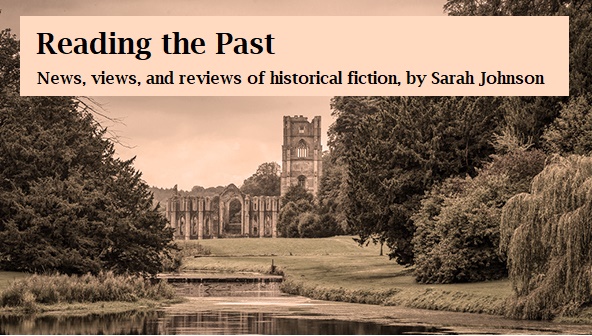(Guess the number 13 may not be that unlucky after all?)
Before and after BEA this June, also, I blogged about the novels at the show that were supposed to be fall's big hits. Hype, by definition, is pretty hard to ignore (not even I am immune?). But I like to believe that people enjoy hearing about upcoming publications, nonetheless. That's the positive nature of hype - rising expectations, intense discussions, eager anticipation. You hope that all the great things you've heard will be true.
Not all of these big deal novels succeed, of course. The test comes when reviews begin to appear, the novels go on sale, and the public determines whether the novels are worth all the fuss. However, there's a cloud of suspicion that accompanies hype; no doubt you've sensed it. If readers feel like publishers - and the media - are pushing books too heavily, the hype can backfire. They don't want to be told what to read, they say; they can make decisions for themselves, thank you very much. Not everyone reads/believes the recommendations in reviews (that's a whole 'nother thread), but anything smacking of advertising gets many readers, and bloggers, suspicious. See this post from Bookninja about Simon & Schuster's attempt (mostly successful, from what I gather) to convince bloggers to promote The Thirteenth Tale.
For example, it also appears that the loud media buzz about Kathleen McGowan's The Expected One, a Mary Magdalene novel with a controversial backstory - the author calls the material autobiographical - resulted in some more-negative-than-usual reviews on Amazon. The title of one is "Hype is as hype does." I've read the novel, and would call the writing amateurish in places, though it's an entertaining story. Was it picked up by a major publisher only because it fits the trendy Da Vinci Code theme? You decide.
Not surprising that some people are wary of hype, in other words. It can raise expectations so high that readers are extra disappointed if they read the book and dislike it.
On a personal level, I admit that intense discussion about a novel has occasionally persuaded me to pick it up sooner than I would have - if I was interested in reading it in the first place, that is. However, I've still not read many of past seasons' big-deal books: Jonathan Strange and Mr. Norrell, The Birth of Venus, Cold Mountain. But when I have read novels like these, I don't believe the hype has affected my opinion one way or the other. After all, novels that are heavily promoted today will be replaced by other, sometimes even more heavily hyped, novels a couple months down the road. It's impossible to keep up. After a while you start to see a pattern to these things.
That may be a cynical attitude in itself. (But it's true.)
Your thoughts - has hype affected your reading at all? Do you care about reading the latest novels, or do you ignore media buzz altogether? Are you suspicious of novels that receive heavy promotion? And whose recommendations do you believe?










I tend to be pretty indifferent toward hype--in the case of historical fiction, if the subject interests me, I'll read it; if it doesn't, I won't. For that reason, I've never been lured to read Cold Mountain, for instance, and I've resisted the the big table in my bookstore heaped high with copies of The Thirteenth Tale. On the other hand, a lot of publisher hype won't dissuade me from reading a book I'm interested in, like the forthcoming Philippa Gregory (whether I'll like it, of course, is another matter altogether).
ReplyDeleteSurprisingly, I haven't heard much from the US publisher about Gregory's latest novel, nor from mainstream media for that matter. I've been hearing more about it from other readers, forums, etc., who seem to have picked up the info from her website. Although, hmm, now that I'm looking at her site, it's got a PW starred review posted there - hadn't seen that before.
ReplyDeleteHype probably raises my awareness, so I'm more likely to have heard of a book if it's been hyped, but it also tends to make me suspicious and if anything less likely to buy it. Possibly a lifetime on the fringes of corporate marketing departments does that to you :-)
ReplyDeleteThe Thirteenth Tale doesn't sound like a book I'd read, and no hype will make me read a book with the 'wrong' setting and time.
ReplyDeleteIf anything, hype makes me more critical towards a book. What I may deem OK usually can end up as 'pretty sucky' because of the hype - because I tend to expect more of a book in that case.
Didn't learn my lesson with the Da Vinci Code, obviously. ;)
In the case of The Expected One, I admit I expected a lot more than what I got...
ReplyDeleteStill haven't read Da Vinci Code either, and don't plan to. Like you said, it wasn't something I had any desire to read anyway.